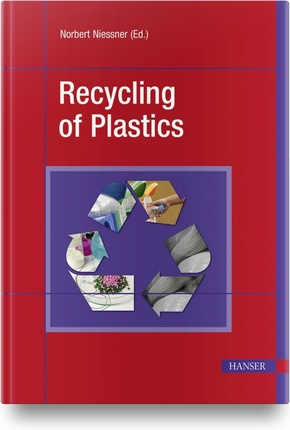| Verlag | Hanser Fachbuchverlag |
| Auflage | 2022 |
| Seiten | 836 |
| Format | 17,6 x 4,6 x 24,7 cm |
| Gewicht | 1720 g |
| ISBN-13 | 9781569908563 |
| Bestell-Nr | 56990856UA |
Rezension:
"This book fills the gap for a modern comprehensive technical guide to recycling of plastics, covering the whole value chain from raw materials to recycled materials. All important recycling technologies (mechanical, chemical/feedstock, dissolution) are discussed and compared to each other and alternative disposal methods such as energy recovery and gasification." Technical Gazette, 30, 6(2024) "Newcomers to plastics recycling and professionals alike will find use in this title that offers an overview of the available technologies and factors that affect them, including product design and legal, economic, and political aspects involved in recycling." The Chemical Engineer, April 2023 "This book fills the gap for a modern comprehensive technical guide to recycling of plastics, covering the whole value chain from raw materials to recycled materials. About fifty international industry leaders and renowned researchers contribute to the book exploring all aspects of recycling of poly mers. The result is a comprehensive and state-of-the-art guide on the global recycling value chain with focus on the most important technologies." RecyAktuell, Februar 2023 "All Your Questions Answered - Dr. Norbert Niessner has combined input from authors across industry to publish the book 'Recycling of Plastics'. The resulting title offers an in-depth guide to the very latest global plastics recycling insights. [...] Niessner explicitly addresses his book to engineers, researchers, students, product designers, plastics and product manufacturers, recyclers, sorters and decision-makers in industry and government. But also to 'anyone after a comprehensive overview of plastics recycling and how it relates to sustainability.' That is also what convinced close to 50 international industry leaders and renowned researchers to pool their expertise and help shed light on all aspects of plastics recycling - from mechanical and chemical approaches to new concepts such as 'design for recyc ling'. And even at 869 Pages, the result is a compact go-to reference guide." Kunststoffe international, 27.02.2023 "Das neue Fachbuch 'Recycling of Plastics' aus dem Carl Hanser Verlag vermittelt einen umfassenden Überblick über den aktuellen Stand des Kunststoffrecycling. Dabei gehen die Autoren um Herausgeber Norbert Niessner auf alle relevanten Aspekte der Wiederverwendung polymerer Werkstoffe ein. [...] Die Vergleichbarkeit der Daten ist durch die Verwendung von Ökobilanzen gegeben, die in allen Kapiteln einheitlich berechnet werden, um die Aussagen der zahlreichen fachkundigen Co-Autoren zu 'kalibrieren'. Das Buch schließt die Lücke eines modernen, umfassenden technischen Leitfadens für das Recycling von Kunststoffen, der die gesamte Wertschöpfungskette von den Rohstoffen bis zu den recycelten Materialien abdeckt. Das Buch hat 836 Seiten und ist in englischer Sprache verfasst." Circular Technology, 17.01.2023 "Keine offenen Fragen mehr - Gemeinsam mit Autoren aus der gesam ten Branche hat Dr. Norbert Niessner das Buch 'Recycling of Plastics' herausgegeben. [...] Ein umfassender und hochaktueller Leitfaden für das globale Kunststoffrecycling." Kunststoffe, Januar 2023

